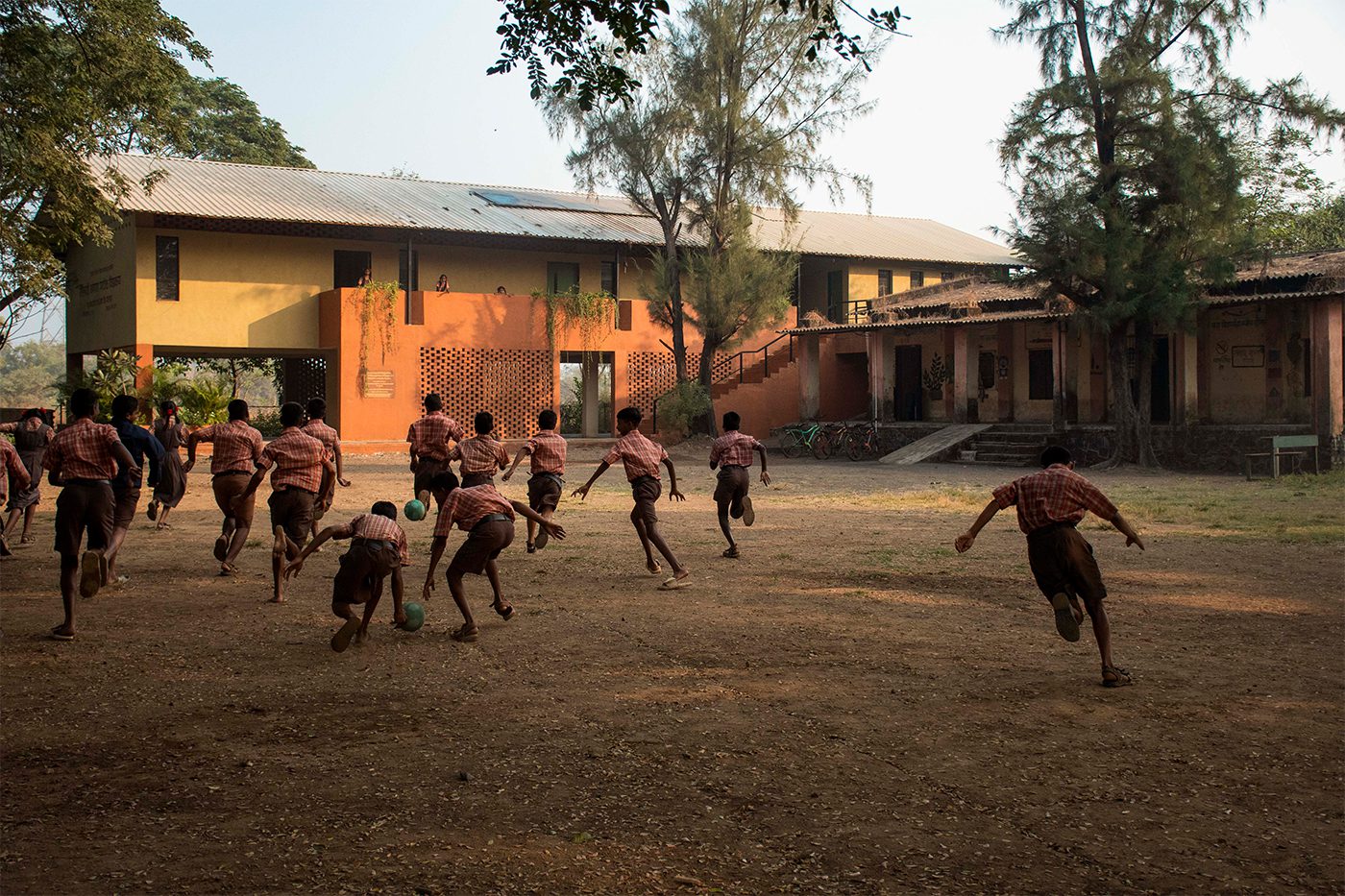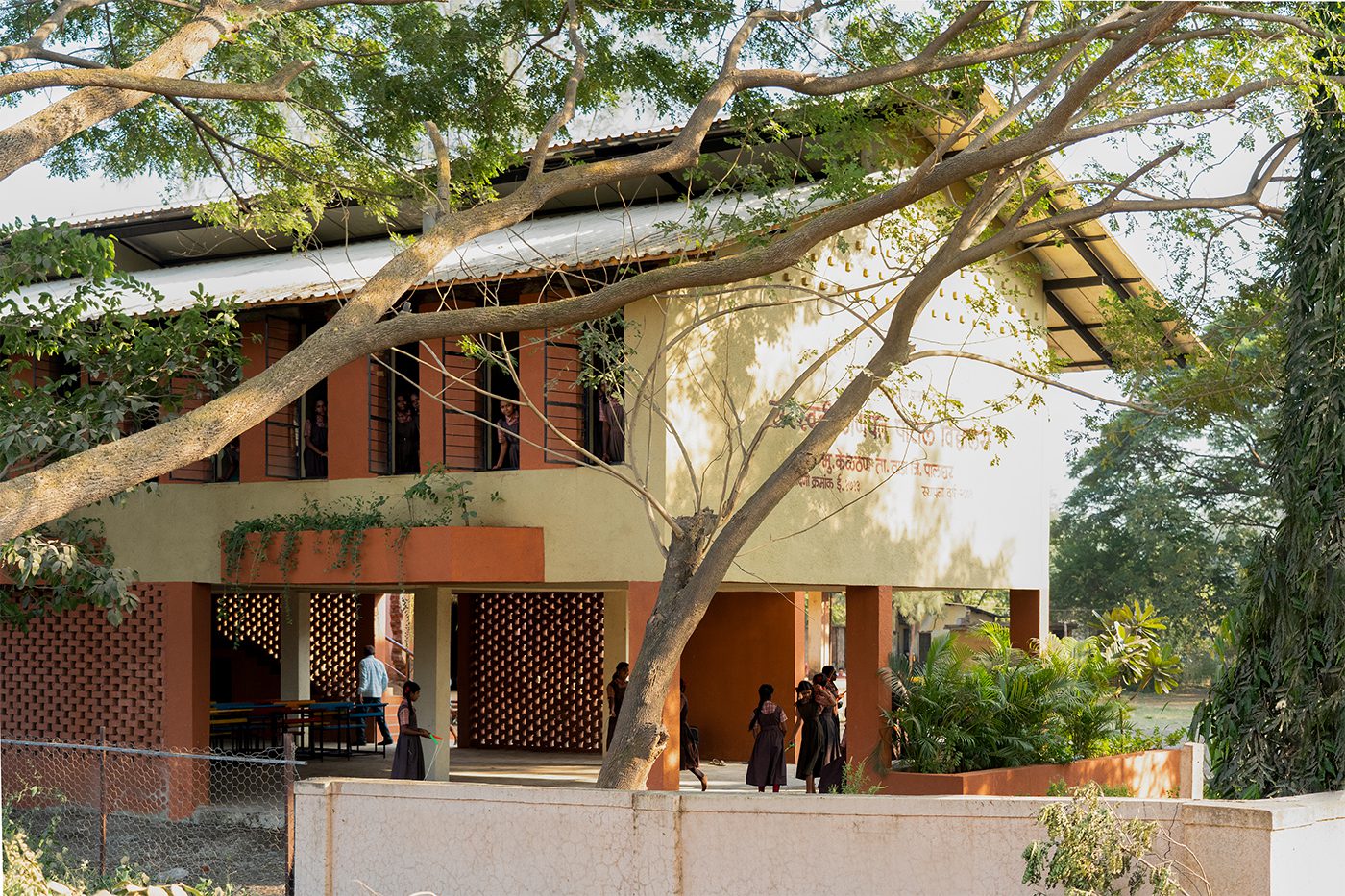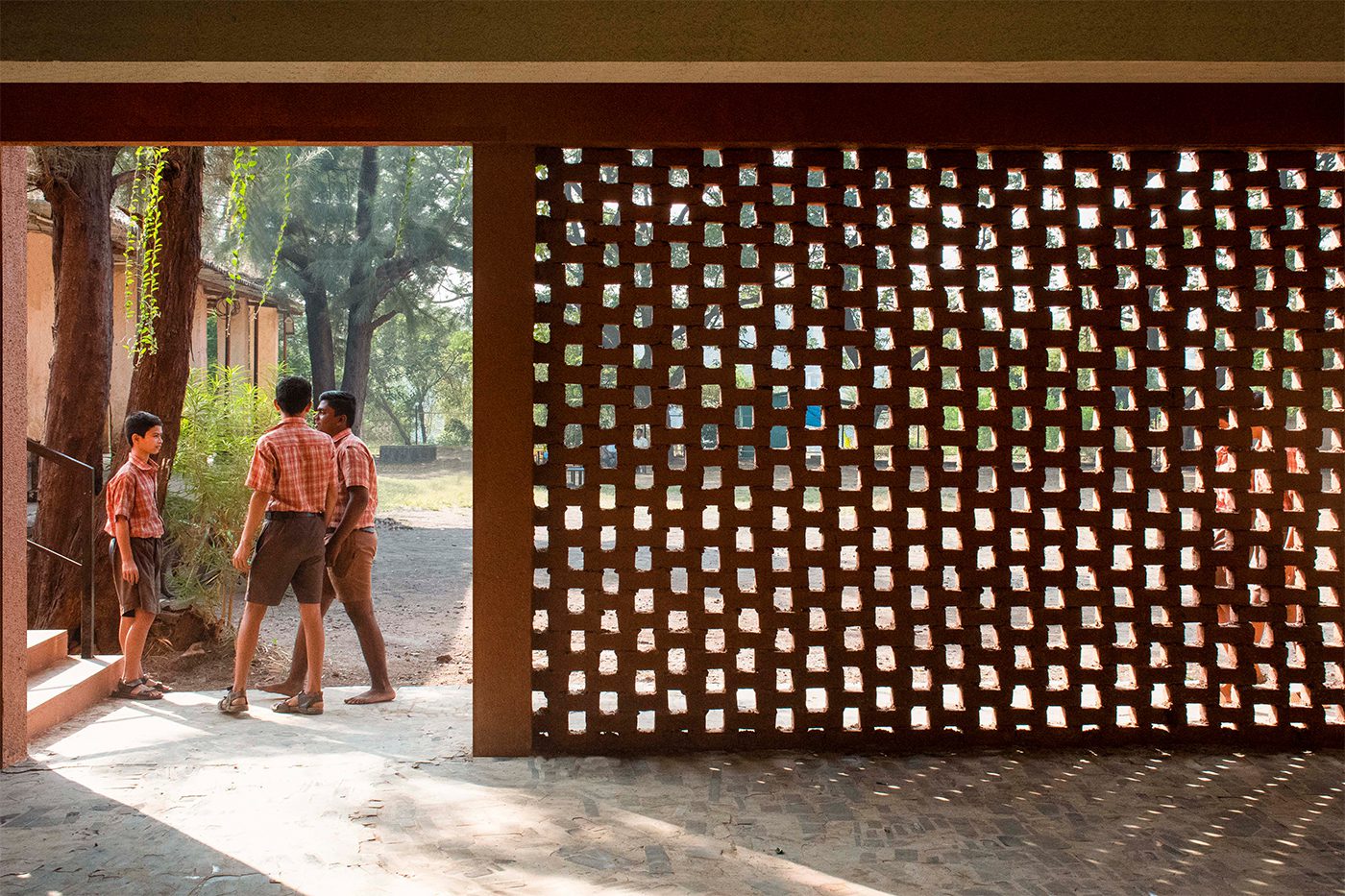Project implementation: India
Project development: India
Rebuilding Flood Resilience: Saraswati Vidyalaya, Kelthan
Saraswati Vidyalaya is a highly affordable rural government school located on the banks of the Tansa River, educating 180 students in grades 8-10 in the tribal village of Kelthan in Palghar, Maharashtra. Suffering from the ravages of nature, the school was partially submerged in the 2019 floods, causing irreparable damage to its infrastructure, making it dangerous for students and teachers to occupy the premises.
The Resilience Rebuilding journey began in 2020, when the architects, together with a local NGO, decided to intervene through a participatory process with the school's teachers and students. The proposal was to build the school in two phases, ensuring regular classes during construction while also facilitating fundraising.
The redesigned school, planned with extreme sensitivity to climate and regional context, incorporates passive solar strategies. Located in the northeast corner of the 1-acre (approximately 4,000 m²) site, the built form helps maximize the school's playing field. The school is elevated on stilts to offer the least possible resistance to floodwaters. The first floor of Phase 1 features three bright, cross-ventilated classrooms with a north-lit roof, along with a staff room, a girls' locker room, and restrooms. These classrooms overlook Mandakini Hill and the lush rice fields, a visual treat for students. The community kitchen is located on the ground floor, serving daily meals to students. The elevated ground floor weaves a multifunctional social space, hosting school activities, community meetings, medical clinics, and awareness campaigns.
A locally sourced material palette helped achieve an incredible construction cost of Rs. 1,200 per square foot (approximately US$13.50 per square foot), ensuring a low carbon footprint. With a concrete structure, the body of this sustainable school is constructed of locally fired red bricks laid in a rat-trap bond (which creates an air chamber within the wall). This reduces the number of bricks while also providing thermal insulation for the classrooms. Brick jalis (trusses) in strategic locations act as visual filters and also ensure breeze flow. The Filler-Slab technique was used on the ground floor, in which locally handcrafted clay discs are inserted into a free-flowing ceiling pattern, reducing the amount of concrete while adding a vernacular aesthetic. Recycled Indian stone flooring, using discarded stones obtained freely from local suppliers, was used to lay the ground floor, in a pattern inspired by the meander of the Tansa River. Puff insulation panels on the roof ensure that classrooms remain thermally comfortable year-round. Roof-mounted solar panels make the school net-zero, self-sufficient in its energy needs. The school's facade, envisioned as a biophilic interface, features green planters as a key design element, maintained by the school's students. The surrounding open space was partially used by the students to grow seasonal vegetables, used in daily meals. The students, along with their farmer parents, contributed to the construction through shramdaan (labor donation), with hands-on training in alternative techniques provided by the architects, bringing skills to the locals.
Saraswati Vidyalaya has now become an example of how rural schools can be reimagined and built sensitively, economically, and yet aesthetically beautiful. Phase 1 generated immense social impact, with increased enrollment, encouraging vulnerable tribal parents to exercise their right to education. An effort to elevate and empower the local, through the local, and with the local.




